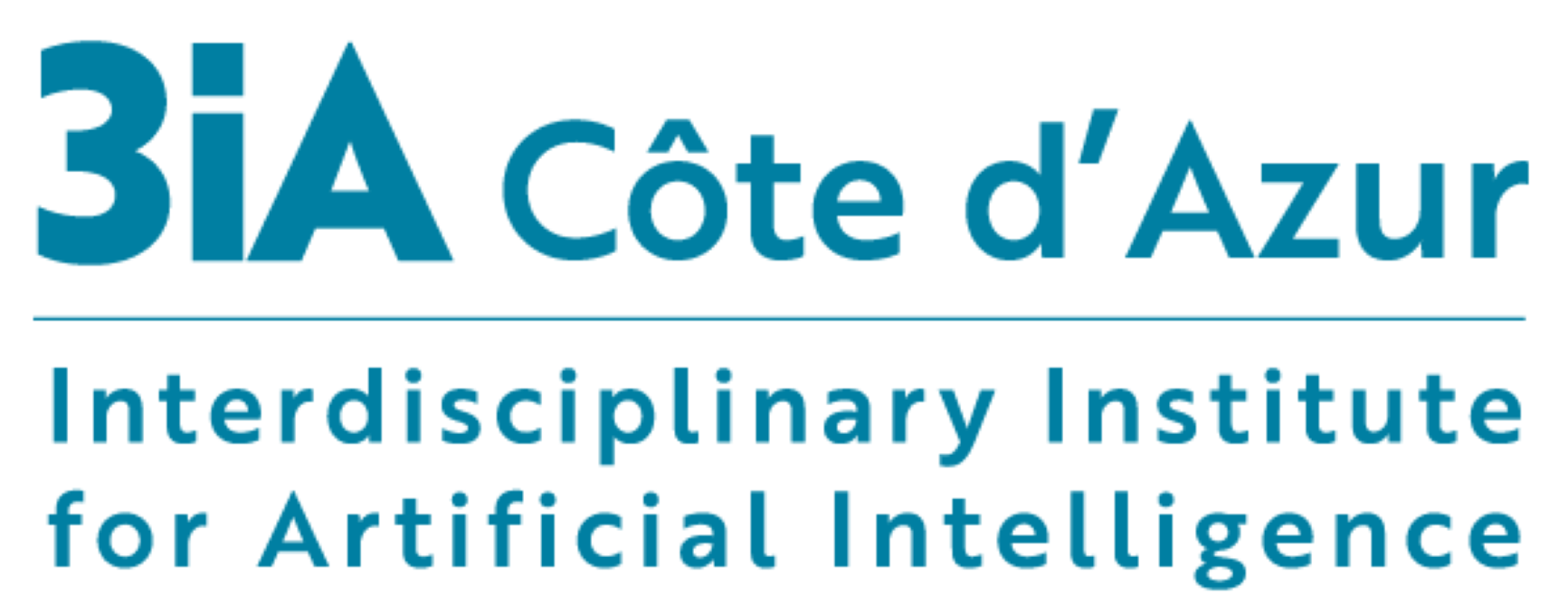Loading...
3IA Côte d'Azur - Interdisciplinary Institute for Artificial Intelligence
3IA Côte d'Azur est l'un des quatre "Instituts interdisciplinaires d'intelligence artificielle" créés en France en 2019. Son ambition est de créer un écosystème innovant et influent au niveau local, national et international. L'institut 3IA Côte d'Azur est piloté par Université Côte d'Azur en partenariat avec les grands partenaires de l'enseignement supérieur et de la recherche de la région niçoise et de Sophia Antipolis : CNRS, Inria, INSERM, EURECOM, SKEMA Business School. L'institut 3IA Côte d'Azur est également soutenu par l'ECA, le CHU de Nice, le CSTB, le CNES, l'Institut Data ScienceTech et l'INRAE. Le projet a également obtenu le soutien de plus de 62 entreprises et start-ups.
Derniers dépôts

Documents en texte intégral
756
Notices
330
Statistiques par discipline
Mots clés
Unsupervised learning
Change point detection
FPGA
Ontology Learning
Linked data
Geometric graphs
Spiking Neural Networks
Arguments
Hyperbolic systems of conservation laws
Privacy
Coxeter triangulation
Artificial intelligence
Image segmentation
Knowledge graph
Atrial Fibrillation
Fluorescence microscopy
Topological Data Analysis
Neural networks
Linked Data
Excursion sets
Convergence analysis
53B20
Distributed optimization
Uncertainty
Segmentation
Semantic Web
Grammatical Evolution
Convolutional neural networks
Computer vision
Echocardiography
Electrophysiology
Web of Things
Artificial Intelligence
Extracellular matrix
NLP Natural Language Processing
OPAL-Meso
Optimization
COVID-19
Persistent homology
SHACL
Autonomous vehicles
Macroscopic traffic flow models
Diffusion MRI
Apprentissage profond
Predictive model
Caching
Graph neural networks
Co-clustering
Machine learning
CNN
Autoencoder
Atrial fibrillation
FDG PET
Isomanifolds
Computational Topology
Information Extraction
Alzheimer's disease
Deep Learning
Sparsity
Latent block model
Cable-driven parallel robot
Semantic segmentation
Multi-Agent Systems
Convolutional neural network
Anomaly detection
Healthcare
Semantic web
Federated Learning
Electrocardiogram
Federated learning
Hyperspectral data
Clustering
Adversarial classification
Extreme value theory
Clinical trials
Medical imaging
Domain adaptation
Graph signal processing
Deep learning
NLP
Convolutional Neural Networks
Brain-inspired computing
Diffusion strategy
Knowledge graphs
Explainable AI
RDF
SPARQL
Chernoff information
Consensus
Argument mining
Image fusion
Computing methodologies
Contrastive learning
Super-resolution
Argument Mining
Visualization
Spiking neural networks
Biomarkers
Correlation matrices
Dense labeling


